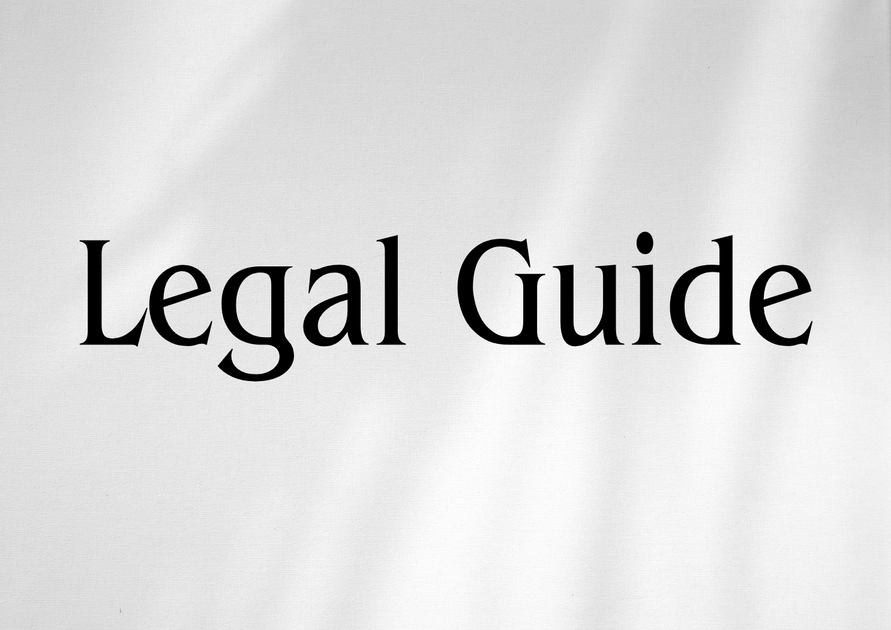Introduction
In a global financial climate marked by digital innovation and evolving customer expectations, consumer protections within the banking sector have taken center stage in the United Arab Emirates (UAE). Recent years have ushered in substantial legal reforms, reinforcing the UAE’s position as a leading international financial hub. The goal – ensuring fair treatment, transparency, and robust safeguards for consumers navigating a complex and rapidly expanding banking industry. For legal practitioners, business leaders, and compliance officers, understanding these legal frameworks is imperative, especially in light of the latest amendments and implementation guidance issued as part of UAE law 2025 updates. These changes not only shape the risk and compliance landscape for financial institutions but also define the rights and remedies available to UAE consumers. This article offers a comprehensive legal analysis, drawing on authoritative UAE legal sources to outline statutory obligations, examine practical implications, and illuminate effective compliance strategies giving business and individuals the confidence to engage within the UAE banking system.
Table of Contents
- Overview of UAE Consumer Protection in Banking
- Legal Framework: Key Statutes and Regulations
- Core Consumer Rights Under UAE Banking Law
- Key 2025 Updates and Legal Reforms
- Comparison of Old and New Legislative Provisions
- Practical Applications and Case Studies
- Risks, Penalties, and Legal Risks for Non-Compliance
- Compliance Strategies for Businesses and Banks
- Conclusion and Forward-Looking Perspective
Overview of UAE Consumer Protection in Banking
The Importance of Consumer Protection
Consumer protection in financial services underpins the confidence of both individuals and organizations engaging with UAE banks. The proliferation of digital financial products, cross-border transactions, and innovative fintech platforms has brought transparency, fairness, and security to the forefront. The UAE government, through regulatory oversight by entities such as the Central Bank of the UAE (CBUAE), Ministry of Justice, and legislative bodies, has implemented a multi-layered regime to prevent abusive banking practices, ranging from mis-selling of products to unfair contract terms or opaque charges.
Regulators and Enforcement Authorities
Several public authorities play crucial roles in overseeing banking and consumer rights, including:
- Central Bank of the UAE (CBUAE)
- UAE Ministry of Justice
- UAE Securities and Commodities Authority
- Consumer Protection Department (part of the Ministry of Economy)
Legal Framework: Key Statutes and Regulations
Main Statutes Governing Consumer Banking Protections
The backbone of consumer protection in banking is found in a suite of federal laws, supplemented by CBUAE guidance and Cabinet Resolutions. The most significant legal instruments include:
- Federal Decree Law No. 14 of 2018 Regarding the Central Bank & Organization of Financial Institutions and Activities – Establishes the CBUAE’s mandate to oversee financial institutions, issue consumer protection regulations, and ensure market integrity.
- Federal Law No. 24 of 2006 on Consumer Protection (as amended by Federal Law No. 15 of 2020) – Broadly addresses all forms of consumer protection, including those within the financial sector.
- CBUAE Consumer Protection Regulation and Standards (2021, revised 2023–2024) – Detailed rules on transparency, customer due diligence, product disclosure, dispute resolution, and complaint handling for financial institutions.
- Cabinet Resolution No. 12 of 2023 on Consumer Protection Committees – Provides for the establishment of dedicated consumer protection panels with investigatory and enforcement powers.
Role of the Central Bank of the UAE
The CBUAE’s authority encompasses licensing, inspection, and regulation of all banks and financial institutions. Notably, its Consumer Protection Department is responsible for setting, monitoring, and enforcing sector-wide standards, particularly in light of the 2025 reforms connected with digital banking, AI-driven services, and high-risk financial products.
Core Consumer Rights Under UAE Banking Law
The updated legal regime provides for a suite of rights and protections to uphold the interests of banking customers. Key rights include:
- Right to Clear and Accurate Information: Banks must provide customers with transparent, accurate, and timely information about products, services, fees, and risks prior to engagement.
- Right to Fair Contract Terms: Standard banking agreements must avoid unfair, hidden, or unilaterally changeable terms. Provisions found to be unconscionable or deceptive may be rendered void under arts. 14 and 15 of the CBUAE Consumer Protection Standards.
- Right to Redress and Dispute Resolution: Customers are entitled to lodge complaints and receive fair, timely resolution – an area strengthened by the 2025 CBUAE regulations mandating Response Time Standards and independent appeals panels.
- Right to Privacy and Data Protection: With soaring adoption of digital financial services, banks are required to comply with data protection norms under Federal Decree-Law No. 45 of 2021 on the Protection of Personal Data (PDPL).
- Right to Ethical Marketing and Sales Practices: The law prohibits mis-selling, false advertising, and aggressive sales in line with CBUAE circulars and the Consumer Protection Law (2020 updates).
Key 2025 Updates and Legal Reforms
Overview of Recent Legal Reforms
The UAE’s progressive legislative landscape is characterized by periodic updates to ensure the highest levels of consumer care. Major enhancements made in 2024–2025 target emerging risks in digital banking, cyber-security, and cross-border services. Notable provisions include:
- Refined Definitions of Unfair Practices: Expanded to cover digital products, bundled fintech offerings, and ambiguous service fees (CBUAE Circular 9/2024).
- Mandatory Product Disclosure Requirements: Enhanced for digital and hybrid banking services, with new template disclosures issued by the CBUAE in 2025.
- Automated Dispute Resolution Mechanisms: Rolled out under the Consumer Protection Regulation (2025 edition) to streamline complaint processing and protect vulnerable customers.
- Increased Penalties and Remedial Orders: Strict penalties and enforcement actions for banks found guilty of repeated consumer violations under Cabinet Resolution No. 6 of 2025.
Practical Impact of the 2025 Updates
These reforms are not purely aspirational; they change the way banks must interact with customers in the UAE. Banks must review all customer-facing literature, update contract templates, train sales and customer service teams, and upgrade complaint tracking systems. At the institutional level, the 2025 updates underscore a shift towards proactive compliance risk management.
Comparison of Old and New Legislative Provisions
The following table summarizes key differences between the previous and updated UAE legal frameworks on consumer banking protections. This comparison is based on the official gazettes and CBUAE guidance:
| Provision | Pre-2025 Regulation | 2025 Updates (Current) |
|---|---|---|
| Definition of Unfair Banking Practice | Narrowly focused on mis-selling and hidden fees | Expanded to include digital services, AI decisions, aggressive cross-selling, and unclear digital consent |
| Contractual Disclosure | Required at point of sale | Mandatory pre-sale and in digital app onboarding, using new CBUAE disclosure templates |
| Complaint Resolution | 30-day period for bank response | Shortened to 15 working days; automated tracking and independent panel review if unresolved |
| Penalties for Non-Compliance | Fines from AED 50,000–500,000 | Increased range; first offenses from AED 200,000, repeated breaches up to AED 2,000,000, plus restitution orders |
| Data Protection Obligations | General privacy rule | Specific reference to Federal Decree-Law No. 45 of 2021; required data protection officers in banks |
Suggested Visual: Consider including a process flow diagram depicting the customer complaint resolution pathway under the 2025 regime (from initial complaint to final CBUAE panel review).
Practical Applications and Case Studies
Example 1: Consumer Redress for Unauthorized Transactions
Scenario: A UAE resident discovers unauthorized withdrawals from their current account through a digital banking app. The bank initially declines responsibility, citing generic terms and conditions.
- Legal Analysis: Under the CBUAE Consumer Protection Standards (Art. 12, 2025 update), banks must demonstrate adequate authentication and customer consent for any transaction. Burden of proof lies with the institution in the event of a dispute over digital transactions.
- Outcome: The customer files a complaint through the bank’s automated resolution portal. Under the updated regulation, the bank must respond within 15 working days and provide evidence. Failure to respond or unfair refusal leads to escalation before an independent panel (Cabinet Resolution No. 12 of 2023), with the possibility of remedial orders and regulatory fines.
Example 2: Mis-selling Complex Investment Products
Scenario: An SME is offered an investment-linked savings plan, presented as low risk by branch staff. The product later incurs significant losses, and it emerges that product risks were not clearly disclosed.
- Legal Analysis: Art. 14 of the CBUAE Consumer Protection Standards (2025) prohibits mis-selling and mandates clear risk disclosures, especially for complex or high-risk products. The bank’s representative may be personally liable if commissions incentivized misleading sales.
- Consultancy Insight: In such cases, the consumer is entitled to nullification of unfair terms and potential restitution, subject to formal complaint procedures. Banks must ensure sales staff are adequately trained and that marketing materials and processes align with new disclosure standards.
Example 3: Data Privacy Breach in Mobile Banking
Scenario: Following a cyber-attack, a bank customer’s personal and financial data are accessed and misused.
- Legal Analysis: In line with Federal Decree-Law No. 45 of 2021 on the Protection of Personal Data, banks must swiftly notify affected individuals, contain the breach, and face potential regulatory penalties. The law now requires all banks to appoint a Data Protection Officer and implement technical security measures, or risk administrative sanctions and civil claims.
Risks, Penalties, and Legal Risks for Non-Compliance
Types of Non-Compliance and Enforcement Mechanisms
- Administrative Fines: As outlined above, CBUAE may impose substantial regulatory fines for first and repeat infringements (see Cabinet Resolution No. 6 of 2025).
- Compensatory and Restitution Orders: For direct customer losses, including refund and contract rescission in cases of unfair practice.
- Operational Restrictions: Persistent offenders may face temporary or permanent revocation of banking licenses.
In addition to formal enforcement, reputational risks are severe. Regulatory findings are published in the Federal Legal Gazette, affecting banks’ standing with institutional customers, investors, and correspondent partners.
Compliance Checklist
Suggestion: A compliance checklist visual can aid organizations in self-assessing their adherence to the current consumer protection regime. Key checklist items include:
- Updated customer disclosure templates in line with CBUAE guidance
- Documented consumer complaint handling procedure
- Staff training modules on mis-selling and fair treatment
- Appointed Data Protection Officer and privacy policy review
- Transparent fee and charge structure published in all channels
Compliance Strategies for Businesses and Banks
Governance and Proactive Risk Management
- Gap Analysis: Regular legal audits and gap assessments against the updated CBUAE Consumer Protection Standards (2025 edition).
- Contract Review: Comprehensive review of all consumer-facing agreements, marketing collateral, and product disclosures.
- Training and Certification: Delivery of specialized training for front-line sales and digital support staff on the nuances of fair banking practice.
- Enhanced Technology and Cybersecurity Controls: Virulent security posture to prevent data breaches and support rapid incident response under PDPL.
- Customer-Centric Redesign: Integrating customer feedback mechanisms to improve transparency, complaint resolution, and ongoing engagement.
Where appropriate, institutions should seek legal counsel before launching new digital products, carrying out major changes to customer terms, or in advance of internal restructuring to ensure ongoing compliance with federal decree UAE requirements.
Conclusion and Forward-Looking Perspective
UAE law 2025 updates confirm the nation’s commitment to consumer welfare and fair banking, leveraging global best practices and technology-driven transparency. The enhanced regulatory environment requires not only technical compliance but also a cultural shift towards genuine customer-centricity. Banks and businesses that prioritize robust compliance frameworks, responsive complaint resolution, and transparent communication will be best placed to thrive as trusted market leaders as the regulatory landscape continues to evolve. As legal consultants, we recommend that all sector participants stay abreast of regulatory developments, invest in compliance training, and proactively seek expert legal advice when entering into new product areas or updating legacy systems. The future of banking in the UAE will reward compliance, innovation, and above all—fairness.




